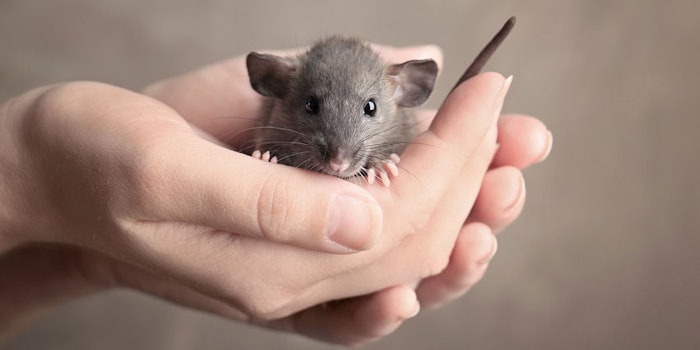
China made a major move in favor of animal test alternatives for cosmetics during the 2nd International Conference on Cosmetics Alternative Methods, held in Beijing on Sept. 20-21, 2018. There, China's National Institute for Food and Drug Control (NIFDC) announced a newly formed working group toward the revision of animal test requirements for cosmetics. U.S.-based Institute for In Vitro Sciences (IIVS) also was recently appointed to the group.
Working Group Initiated
According to the NIFDC, one day before the conference opening, 15 firms—including cosmetic inspection agencies, research institutions and cosmetics industry representatives—formed a research and validation working group toward alternative test methods. Well-known experts in China and abroad were invited to verify experts in the relevant fields and form an advisory group.
This demonstrates the nation's commitment to revising the test requirements for cosmetics. It also follows previous reports by the nongovernmental organization Leaping Bunny that regulations were easing in the East.
"We must do our utmost to accelerate the establishment and operation of China's cosmetics substitution test and verification institutions," stated an NIFDC spokesperson, during the event. "The EU, the United States, Japan and other regions have established certification agencies based on cosmetic animal substitution test technology. [It is especially imperative to strenghten] China's animal replacement test promotion work."
Lu Yong, deputy director of the Central Procuratorate, vice director of NIFDC and chair of the working group, added that China has not yet set up a similar alternative test and verification institution but the Central Inspection Institute, as a technical support unit directly under the State Food and Drug Administration, is a national organization that evaluates the safety of cosmetics in China. It will undertake all cosmetics-related inspection and testing work including the revision of cosmetic safety standards and related technical regulations.
Technical Challenges
Yong added, in the NIFDC statement, "With the in-depth study of alternative method validation and technology conversion in China, we have also discovered some technical issues." Examples given include the applicability of alternative methods such as the OECD guidelines; i.e., “chemicals (including mixtures)” in the OECD guidelines are not equivalent to “cosmetics.” This is a challenge because, according to Yong, the form of a cosmetic will affect the results of cell tests, while the colored substances in the raw materials as well as animal and plant extracts also affect the observation of results.
"We must do our utmost to accelerate the establishment and operation of China's cosmetics substitution test and verification institutions."
In addition, there is an issue of the accessibility for special materials and/or equipment required for replacement test methods. For example, the cornea is not a byproduct of slaughter in China, so research is being conducted for a method of replacing the cornea that is more suitable for China's national conditions. The skin/corneal model approved by OECD regulations is also difficult to obtain in China, and the domestic tissue model is not universally recognized.
IIVS Appointed to Group
IIVS, world-renowned for its validation and implementation of alternative methods, has already been working directly with the NIFDC to build an infrastructure in China that can support animal-alternative test methods. For example, earlier this year, IIVS also collaborated with multinational chemical companies BASF SE and Givaudan to import a cell-based assay for skin sensitization into China for the NIFDC.
The firm also was heavily involved in the review of the first alternative method accepted by China's Food and Drug Administration in 2016, and has recently advised on two other methods currently under review.
"IIVS has a long-standing partnership with the NIFDC to help them incorporate alternatives into their regulatory oversight of cosmetics," said Erin Hill, president of IIVS. "The establishment of this working group clearly demonstrates the NIFDC's commitment to alternatives, and we are proud to be considered among their top advisors."
Industry Response
According to a report in the South China Morning Post, Troy Seidle, vice president of research and toxicology for Humane Society International, said the NIFDC statement is promising.
“It would be the first time the authority has publicized its view toward cosmetic alternatives with a future strategy so clearly articulated,” Seidle said. “Chinese authorities and stakeholders are actively working to embrace validated alternatives to strengthen international regulatory alignment and trade in the cosmetic sector.”










